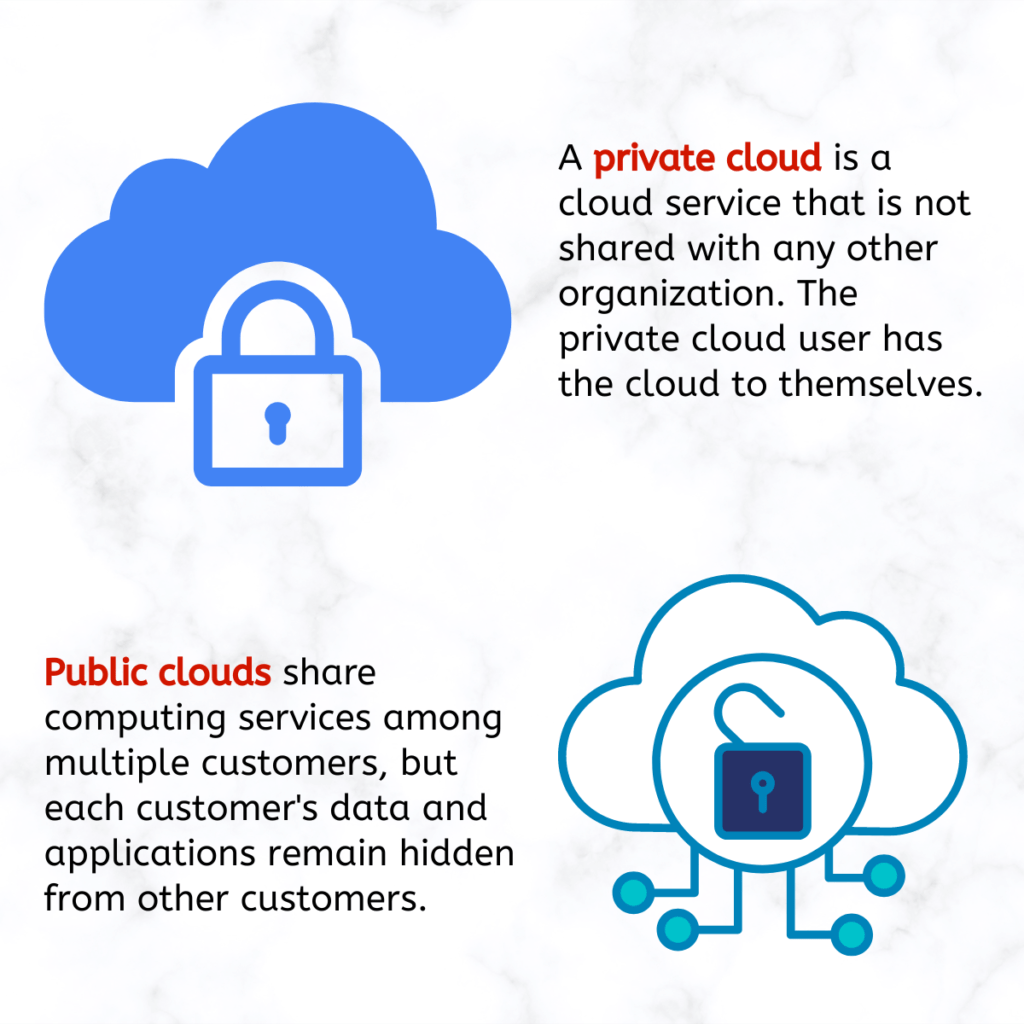As more small businesses move to the cloud, the decision to choose between a private or public cloud for your ERP system is becoming increasingly important. An ERP system helps businesses manage and automate their operations. Here, we will explore the benefits and drawbacks of both private and public cloud ERP solutions for small businesses. This shall help you determine which option is best for your company.
Private Cloud ERP
A private cloud ERP solution is hosted on a server that is exclusively for your organization. This means that you have complete control over the infrastructure, security, and maintenance of your ERP system. A few of the advantages of using a private cloud ERP for small businesses are:
Enhanced security: Having your own server reduces the chances of data breaches and other security issues.
Customization: You have the ability to customize your ERP solution to meet your business’s specific needs since you have complete control over the infrastructure.
Better performance: Due to their dedicated resources, private cloud ERP solutions tend to offer greater performance than public cloud ERP solutions.
However, there are also some drawbacks to consider when choosing a private cloud ERP solution for your small business. These include:
Higher costs: A private cloud necessitates significant upfront investment in hardware, software, and infrastructure, which may be a challenge for small businesses with limited budgets.
Limited scalability: As your business expands, you may need to invest in additional hardware and infrastructure to support the increased workload.
Maintenance and support: With a private cloud, you are responsible for maintaining and supporting the system, which can be time-consuming and expensive.

Public Cloud ERP
A public cloud ERP solution is hosted by a third-party provider and accessed via the internet. This means that you do not need to invest in hardware, software, or infrastructure and can instead pay for the service on a subscription basis. A few of the benefits of a public cloud ERP for small businesses are:
Lower costs: A public eliminates the need for significant upfront investment, making it more accessible for small businesses with limited budgets.
Scalability: Public cloud are designed to scale with your business, allowing you to easily add or remove users and resources as needed.
Maintenance and support: With a public cloud ERP, the provider is responsible for maintaining and supporting the system. This reduces the burden on your IT team.
However, there are also some drawbacks to consider when choosing a public cloud ERP solution for your small business. These include:
Security concerns: With a public cloud ERP, your data is stored on a server that is shared with other organizations. This can increase the risk of data breaches and other security threats.
Limited Customization: A public cloud may limit your ability to customize the system to meet the specific needs of your business.
Performance: During peak usage times, public cloud may experience performance issues because they share resources with other organizations.
Which Option Is Best for Your Small Business?
SMEs should consider a variety of factors when choosing cloud ERP, including budget, IT resources, security concerns, and scalability. Generally, small businesses with limited budgets and IT resources may benefit from a public cloud, while those with more complex needs and larger budgets may prefer a private cloud solution.
Regardless of which option you choose, it is important to work with a reputable provider that can offer the security, customization, and support you need to ensure the success of your ERP implementation. Additionally, it is crucial to carefully evaluate different vendors and compare their offerings, pricing, & support to make an informed decision. With the right solution in place, your small business can improve efficiency, streamline operations, and better serve your customers,helping you stay competitive in today’s rapidly changing business landscape.
The most crucial thing is to pick the appropriate solution for your business needs, whether you choose a private or public cloud ERP. Consider the advantages and drawbacks, do extensive study, and talk to subject-matter authorities before making any big decisions. By doing this, you can make sure that your ERP deployment is successful. This sets up your small business for future growth and success.

